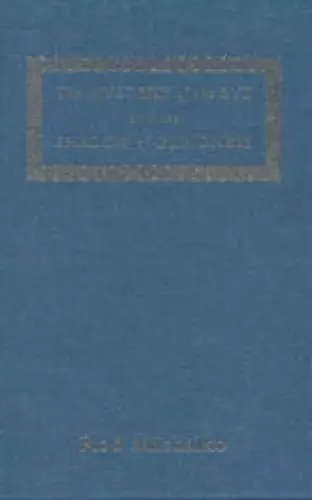The Mystery of the Eye and the Shadow of Blindness
Format:Paperback
Publisher:University of Toronto Press
Published:1st Mar '98
Currently unavailable, and unfortunately no date known when it will be back
This paperback is available in another edition too:
- Hardback£50.00(9780802042507)

'Michalko, a blind theorist, reminds us that blindness always appears in the form of a particular narrative, be it that of diagnosis, rehabilitation, or the collective representations of everyday life. The strength of the work is that while it acknowledges the physiological fatefulness of blindness as a condition it makes possible an understanding of the openness of blindness as a life. The latter is shown to be not a monolithic story told by nature, calling only for coping and adjustment; it speaks of the blind person's need to depict the possibility of a thoughtful and enjoyable life with blindness. It is a book for those who seek an enlightened theorizing of adversity in human life as well as for those professionally engaged with the blind.' -- Roy Turner, Adjunct Professor, York University 'In introducing his text to the reader Rod Michalko says, "This book is not about me but about blindness itself." He could just as easily have said, "This book is not about me but about you the reader - it is about all of us." As readers we soon discover the complex implications of the fact that sightedness and blindness are general conditions of life. Blindness is usually considered a medical, technical, or social problem, but what happens, Michalko asks, when we approach blindness not as problem but as teacher, as mode of being? Blindness as teacher? Indeed, the irony is that there may be no greater handicap to seeing and to understanding what it means to see than sightedness. In this book Rod Michalko eloquently fuses the technique of story telling and judicious interpretation in probing the phenomenon of the (un)sighted-eye and of the unsighted-eye-that-sees. He draws his wonderful stories from his own life, from the lives of others, from literature and human science, and from myths and ancient narrative sources. As a near-blind person he knows intimately the phenomenology of blindness, not only philosophically, but also personally and practically in a manner that provides him with profound hermeneutic sensibilities. Michalko shows us - blind and sighted persons - how living the reflective experience of blindness may restore our sense of life's priorities, of the mystery of seeing, and of the value of human relations in the shadow of blindness.' -- Max van Manen, Faculty of Education, University of Alberta
Unravels the ways that blind persons come to understand and live their lives. It shows that blindness is a life worth living and that blind persons must grapple with the question of what kind of blind person they choose to be.
Blindness is commonly considered to be a physical condition with negative consequences for its sufferers. Most research and treatment begin with the assumption that blind persons require adjustment and training to cope with their distorted view of reality. For Rod Michalko, blindness offers a legitimate way of being and a teaching tool - one that presents a unique perspective on aspects of the world that the sighted never experience and that the disciplines of ophthalmology and rehabilitation never consider.
This book explores matters of choice and personal fulfilment in the context of blindness. Ophthalmology and rehabilitation use sheer necessity as their guiding principle, but the blind person must grapple with the question of what kind of blind person he or she chooses to be. The story of blindness is retold in the life of every blind person and whenever blindness is thought about, spoken of, or acted upon. Michalko immerses himself in this multiplicity of narration, weaving his own experience of blindness through it, using it as an occasion to think about life, our decisions, our choices, including how we choose to understand each other, and the ways we choose to live collectively in the human community. He wants you to consider what can be produced by thinking of blindness as an essential part of being.
This is an important book for anyone who has personal or professional contact with any community of disabled persons, particularly the blind, as well as anyone who simply wants to better understand what it means to be human.
ISBN: 9780802080936
Dimensions: 228mm x 152mm x 15mm
Weight: 298g
224 pages